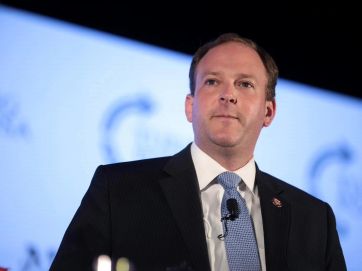NAS revisited some of our articles from last year to find out, “what happened?” Here’s what we learned.
-
An NYU law professor, J.H.H. Weiler, is the editor-in-chief of an academic journal that published a book review that the book’s author found disagreeable. The author, Dr. Karin Calvo-Goller, charged Weiler with “criminal defamation,” and he was put on trial in Paris. Peter Wood wrote a letter last March to express his alarm over the trial.
According to a Wall Street Journal blog, his verdict is due March 3, 2011. Professor Weiler told his story here yesterday. He noted that he was given a fair trial.
-
NAS filed a friend-of-the-court brief in Fisher v. Texas, urging the court to rule racial preferences unconstitutional at the University of Texas. But last week the Fifth Circuit Court of Appeals upheld racial preferences and, as Charlotte Allen wrote at Minding the Campus, “upheld them with a vengeance.”
Allen wrote that this decision sends the message that “There is very little that the citizens of a state can do to prevent administrators at the universities supported by their tax dollars from incorporating racial preferences into their admissions policies.” The three-judge panel cited the precedence of the 2003 Grutter v. Bollinger decision, which upheld the use of race-based admissions for achieving “diversity” in the University of Michigan’s law school.
But Roger Clegg, writing at Phi Beta Cons, says the decision is actually good because “we want this case to end up before the Supreme Court.”
Indeed, one of the judges on the panel, Emilio M. Garza, wrote a 30-page “special concurrence” to accompany his decision (here’s an interesting blog post about it). He wrote that although he felt Grutter bound him to decide as he did, he considered Grutter a “misstep” which only the Supreme Court could rectify. He wrote, “Yesterday’s racial discrimination was based on racial preference; today’s racial preference results in racial discrimination.”
Essentially his opinion sets up an opportunity for the Supreme Court to repeal racial preferences.
-
In April, Stanford University Students for a Sustainable Stanford presented a proposal to the Committee on Undergraduate Standards and Policy to make sustainability education part of the university’s General Education Requirements. The morning of the meeting, Peter Wood wrote a letter to the members of the committee urging them to vote against the proposal and giving reasons why mandating such education in an effort to uniformly impose a particular ideology is “at odds with the fundamental values of liberal education in a free society.”
The committee did not approve the proposal that day but agreed that further consideration should be given to it. The Editorial Board of the Stanford Daily endorsed the proposal in May, and according to another Stanford Daily article it was still under review in November. As of today, the General Education Requirements listed on the Stanford website do not include sustainability. We contacted the co-presidents of Students for a Sustainable Stanford but have not received an answer from them yet.
-
At Florida Gulf Coast University, students circulated a petition to make a mandatory sustainability course optional. The course, University Colloquium: A Sustainable Future, aimed to instill "an ecological perspective" in students. The Eagles for Liberty, a libertarian and objectivist student group, created the petition and intended to present the petition to university leaders once it had been signed by 1,100 students, 10% of the student population. I contacted its president, Brandon Wasicsko, this week to find out what happened.
He replied, “While our Facebook group was largely successful in attracting nearly 1,000 students, the number that actually followed through and signed the petition was only around 250. Due to a loss of momentum and the Spring 2010 semester coming to a close, we decided to drop the project.”
The course remains mandatory for all students at FGCU.
-
Gonzaga University’s Institute for Hate Studies is going strong and will host an “international conference on hate studies” in April. Glenn Ricketts wrote about the Institute in a January 2010 article, Gonzaga Studies Hate:
The Gonzaga program is essentially an exercise in amplifying cultural clichés. The Institute is awash to the gunwales in multiculturalism, “diversity,” “holistic” pedagogy (just like sustainability, remember?) and post-colonialism, and pretty obviously aims at converting its students into political activists.













